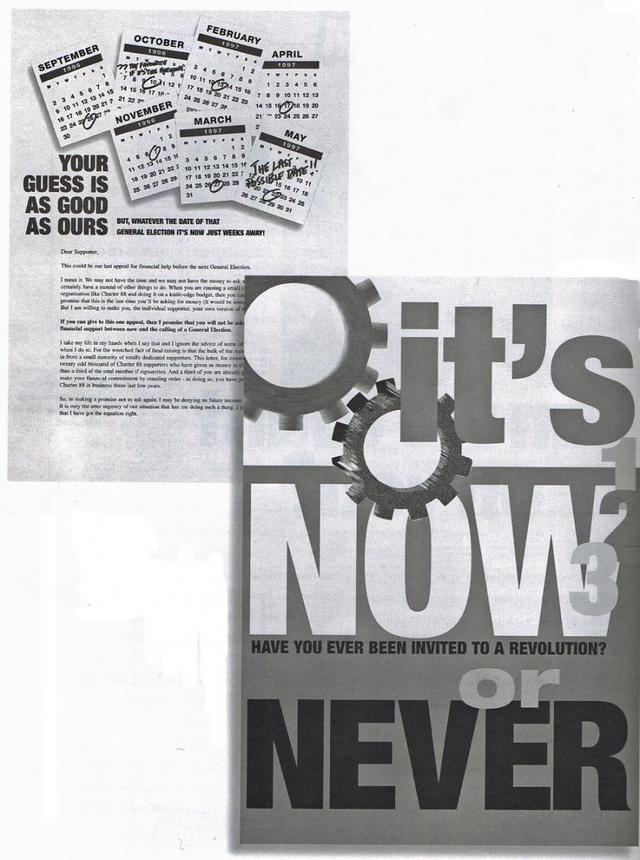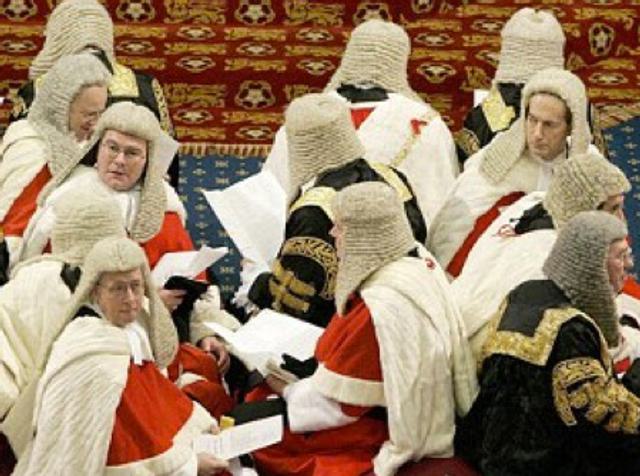Charter 88: the ‘buy-out’ letter
- Exhibited by
- Carolina Herrara, project manager, SOFII.
- Added
- June 20, 2012
- Medium of Communication
- Direct mail.
- Target Audience
- Individuals
- Type of Charity
- Politica
- Country of Origin
- UK
- Date of first appearance
- 1991
SOFII’s view
It's not hard to understand why George Smith, who wrote this letter, was thrilled to use the phrase 'mendicant mode'. We're pretty sure that writers all over the world would be delighted to be granted the same privilege. However, it is perhaps unfair to use the word 'begging' in such a letter and it most likely wouldn't be used nowadays. Still, we find it odd that, apparently, no one has tried to write such a letter again, or developed further the concept of allowing supporters to buy themselves out of a mailing programme. As George once said 'Perhaps candour is just too dangerous a commodity for charities?'
We have only been able to show an excerpt from the letter – the important bit – because the complete version has long since disappeared. Anybody out there who knows where we could find the whole thing? And do you know of any other organisation who has tried the same technique?
Creator / originator
George Smith.
Summary / objectives
To indulge in a little mischief making and spare a few trees at the same time. And to raise some money of course.
Background
Charter 88 began as a special edition of the New Statesman magazine in November 1988, to be swiftly followed by an advertisement in theGuardian signed by 348 people. It was a protest to challenge establishment complacency about the health of our democracy. People were invited to 'add your names to ours' and make a donation towards future ads. They did so in their thousands. By 1990, Charter 88 was a powerful lobbying goup and had 60,000 supporters who, inevitably, were regularly asked for money to support the campaign's work.
There was a traditional four-appeals-a-year programme aimed at conjuring an average of £25 a year from each supporter (there was no membeship subscription). It worked but only in the face of mass groaning from Charter 88 enthusiasts. But it worked and always made the target.
Yet the situation demanded a little mischief. Charter 88 thought that if they were mailing four times a year in the expectation of £25 per name, why not ask for the £25 in the first place? It was time to change:
'... And please send us a contribution to help our work. It always pains us when we write to you that we have to conclude our reporting back with that time-honoured phrase about needing more money. We know full well that you will receive many such letters that ask you for financial support. And we know full well that it must be tiresome in the extreme.
Can we suggest a way to spare both of us this regular embarrassment? If you can send us a donation of £25 or more either by cheque or standing order in response to this letter, we promise not to ask you again for money during 1991. We will continue to keep you updated with information about the campaign and we may even ask you to do other things to help us. But we will spare you the regular begging. We may be the first cause group to talk to its supporters with this kind of honest maturity, but we're not going to be ashamed of that. We need the money badly but we hate the mendicant mode.'
Special characteristics
Candour and courage. Charter 88 had recruited their supporters exclusively from liberal broadsheets and knew them to be mainly political activists, academics, lawyers, teachers and doctors. So they felt that their donors would appreciate a more straightforward 'get-to-the point' approach and were brave enough to go through with it.
Influence / impact
The letter became quite a famous case history that was reported in books and presented on many platforms.
Results
This simple mailing achieved Charter 88's best ever response in its early days. Was it because all their supporters were highly intelligent or worldly? Was it because the language was refreshingly unorthodox? Was it because it made an offer that few would refuse?
Merits
Charter 88 clearly knew and understood their supporters well enough to choose an alternative way of speaking to them that was very successful.
Other relevant information
Charter 88 and the New Politics Network merged in 2007 and became Unlock Democracy.



Also in Categories
-
-

















